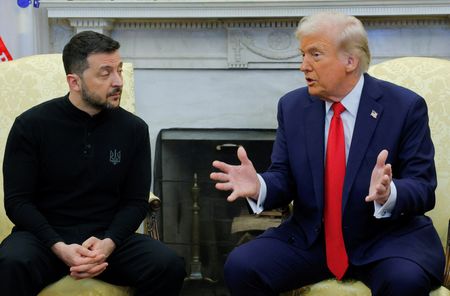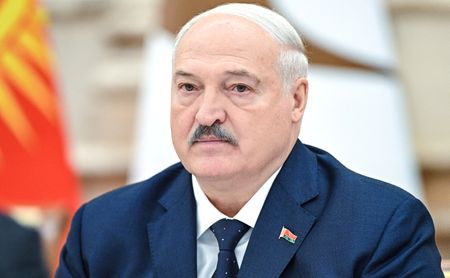(Reuters) -The United States could dip into recession on the fallout from a global trade war but everyone will suffer, including the euro zone, even if to a lesser effect, French central bank chief Francois Villeroy de Galhau said on Wednesday.
The U.S. has imposed a raft of tariffs on most nations around the world and while it has suspended some duties, many remain in place and the threat of trade turmoil also weighs on confidence, investment and output.
“The new measures announced as well as the increasing unpredictability, constitute a major negative shock to the global economy, but first and foremost to the U.S. economy,” Villeroy told the Atlantic Council in Washington. “There could even be a U.S. recession, which was unthinkable three months ago.”
The impact on the euro zone could be much smaller but the strife could still knock off at least a quarter of a percentage point from 2025 GDP, Villeroy, who is an influential ECB policymaker, said in a speech.
While some economists say a trade war is likely to push up inflation, Villeroy played down these worries, saying the net impact could even lower prices.
“There is currently no inflationary risk in Europe,” he said. “The impact (of a trade war) on inflation remains more uncertain but could be as a whole on the downside.”
Villeroy said further attacks on the independence and credibility of central banks could add to the disruption experienced in financial markets in recent weeks.
U.S. President Donald Trump, who has repeatedly attacked Federal Reserve Chair Jerome Powell in recent weeks, backed off from threats to fire him this week, fuelling a rally in financial markets that had been nervous over a potential loss of the Fed’s independence.
“Let me … express again my gratitude to Fed’s Chair Powell, who admirably shows how a central banker must behave,” Villeroy said.
(Reporting by Balazs Koranyi, Editing by Timothy Heritage)











